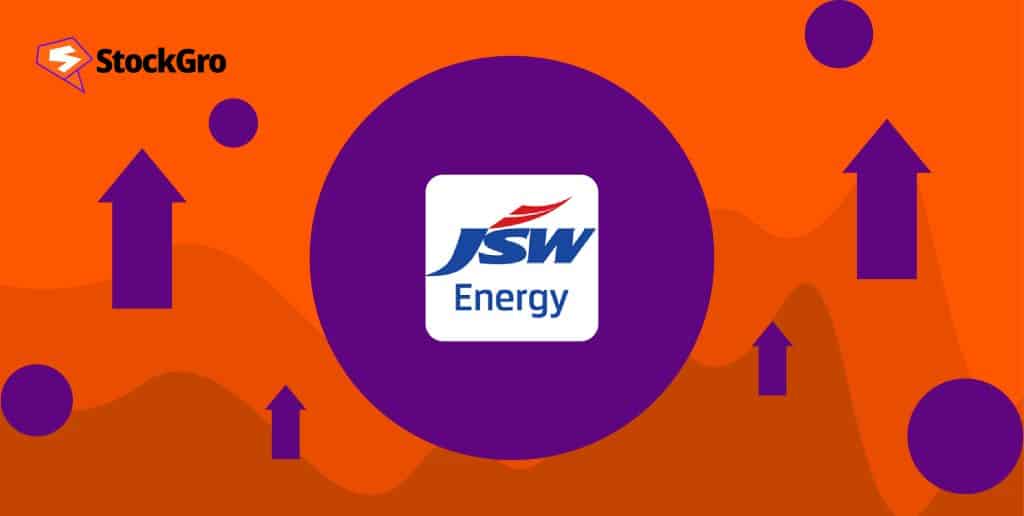
India is the world’s third-largest producer of and consumer of electricity. By January 31, 2024, India had generated about 182.05 GW of renewable energy or approximately 42.3% of its installed capacity.
Having established itself as a critical player in the green energy sector within India, JSW Energy announced expansion into clean energy business lines, particularly through its subsidiary, JSW Neo Energy. It has just seen a jump in its stock price that sparked investors’ and analysts’ interests.
The sudden increase in stock value is closely associated with the moves they made on the renewable energy landscape, specifically through their subsidiary JSW Neo Energy, which signed large power purchase agreements (PPAs) worth 1325 MW for wind and solar projects.
This article examines the details of these groundbreaking PPAs, the strategic relevance of these agreements and JSW Energy’s plans for aggressive expansion into other business areas.
Also read: The role of the energy sector in powering India’s growth.
About JSW Energy
Steel, energy, infrastructure, cement, and sports are just some areas where JSW Group is a significant player. It is led and founded by Om Prakash Jindal. This company represents a success because it comes up with new ideas, applies environmentally friendly techniques, and strives for perfection.
JSW has expanded widely with diverse businesses while emerging as a market leader in each sector, which has significant economic and social ramifications. JSW Group’s flagship companies include JSW Energy, one of India’s largest producers.
JSW Energy is also a significant component of the company’s total business activities, substantially affecting the Indian power sector. The company owns various thermal and hydro projects across India. It has demonstrated its commitment to sustainability through its large investments in green energy projects that align with global climate change interventions.
JSW Energy is actively increasing its renewable energy capacity, reaching approximately 7,245 megawatts (MW). On June 28, 2024, JSW Energy’s market capitalisation stood at ₹1,28,600.80.
Must read: Decoding the significance of market capitalisation
The power purchase agreements (PPAs)
A subsidiary wholly owned by JSW Energy called JSW Neo Energy recently made significant strides towards securing large-scale Power Purchase Agreements for both solar and wind projects.
The projects combined had a capacity of 1,325 MW, which is impressive. Moreover, GUVNL and SECI signed 300 MWs and 1025 MWs, respectively, based on PPAs wind PPA was contracted out to SECI, while Gujarat Urja Vikas Nigam Limited (GUVNL) entered into a solar PPA for 300MW with JSW Energy Limited.
Never before has SECI entered into such an extensive power purchase agreement at once, as in the case of this 1,025 MW wind PPA agreement. This shows how much work JSW Energy has been putting into renewable energy projects. It is determined to expand its renewable energy portfolio and assist India in meeting clean energy targets. This project will significantly boost JSW’s capacity to generate power through renewables.
Moreover, the inclusion of GUVNL in this arrangement strengthens the presence of JSW Energy even more within the solar sector. This agreement will help JSW Energy expand its solar capacity and respond to increased demand for green power in Gujarat, which is one of the leading states in India when it comes to solar energy installation.
It is under these PPAs that JSW Energy’s renewable capacities are increased, thus meeting a diversified energy mix objective.
Market reaction
Due to the recent happenings, JSW Energy stock shot up by 4% in a single day on June 27, 2024, from ₹712.30 to ₹740.95.
Currently (on June 28, 2024), a share of JSW Energy is trading at ₹735.20. By tracking the stock history, it can be seen that JSW Energy has returned about 998.13% over five years.

The target price for JSW Energy estimates for the next year is:
- Four analysts support this bullish outlook and recommend a strong buy rating.
- One analyst suggests a buy rating.
- There is one hold recommendation.
- No analysts recommend selling this investment.
- Four analysts advise a strong sell rating.
The overall recommendation, consensus analysts rating is hold
You may also like: Understanding the basics of the broking industry and its recent trends
JSW Neo Energy’s achievements
JSW Neo Energy, one of JSW Energy’s subsidiaries, has recorded tremendous achievements in the green power industry.
Solar Energy Corporation of India (SECI) was awarded a letter of award for developing a wind-solar hybrid power project using up to 300 MW from the Solar Energy Corporation of India (SECI). It also promotes environmental sustainability through the maximum utilisation of renewable sources by means of innovative hybrid designs that combine solar and wind energy.
Participating actively in Tariff-based bidding for Tranche VIII to put up 1,200 MW of wind-solar hybrid power projects helped JSW Energy connect the Interstate Transmission System (ISTS). Because the energy industry moves quickly, this approach is based on strategic adaptability and vision.
JSW Energy is looking for new opportunities in the renewable energy sector to help it remain at the top as an innovator or leader.
Carbon neutrality and hydrogen economy
JSW Energy is an evolving company committed to sustainability and innovation in the energy sector. Regarding company progress, there are two areas: carbon neutrality and hydrogen economy.
Carbon neutrality by 2050:
By 2050, JSW Energy wants to be carbon neutral. It demonstrates its commitment to decreasing its environmental footprint and supporting global climate change mitigation measures.
This plan includes elements like using more renewable energy, making energy use more efficient, and introducing new technologies. JSW Energy intends to achieve sustainability standards within the power business by gradually reducing its carbon emissions; this would also help India’s shift toward a low-carbon economy.
Green hydrogen offtake agreements:
JSW Energy has further set sight on the emerging hydrogen economy as part of its commitment to clean energy. Such have been entered into by green hydrogen offtake agreements, which are crucial for fueling the demand for hydrogen as a sustainable energy source.
Produced from renewable sources, green hydrogen can decarbonise different sectors such as transport, industry or even power generation systems.
These agreements put JSW Energy at the forefront of the hydrogen economy through which it can exploit this potential technology towards reaching its carbon neutrality target and supporting greater environmental goals.
Bottomline
JSW Energy just attracted a strongly approving share price, proving that the market’s sentiment towards the company’s potential and direction is optimistic.
JSW Energy has a diversified and expanding renewable energy portfolio, a sustainable vision, and other tactical steps to benefit from emerging options; all of these put it in an excellent position to remain at the forefront of power sector development and contribute significantly towards a cleaner planet in years ahead.
